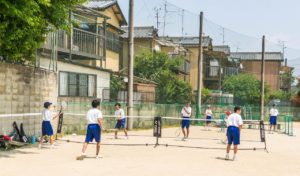Photo by Oscar Omondi on Unsplash
This post is part of a series on Swahili noun classes. For an overview, see this post. To learn about each noun class in depth, check out these posts: The A-Wa Class, the Ki-Vi Class, the Li-Ya Class, the U-I Class, the I-I Class, the U-Zi Class, the I-Zi Class, the Ya-Ya Class, the Ku-Ku Class, the PaKuMu-PoKoMo Class.
Overview
The last noun class contains only a single noun: mahali (place). But other nouns can be brought into this case with the suffix –ni, as in nyumbani (in the house), afisini (in the office), shuleni (at school), or jikoni (in the kitchen). The locative class involves three different types of location:
- pa– refers to a specific location, something that can be identified
- ku– refers to a general location, something that cannot be precisely identified
- mu– refers to an interior location
Summary of Agreement
Each type of location uses different prefixes, infixes, and demonstratives:
| adjective | possessive | subject | object | demonstratives | relatives |
| pa- ku- m- | p- kw- mw- | pa- ku- m- | pa- ku- mu- | hapa, hapo, pale huku, huko, kule humu, humo, mle | po- ko- mo- |
Adjective Agreement
The adjective agreement prefixes for the Pa-Ku-Mu class are pa, ku-, and m- in both the singular and plural.
- mahali pabaya (a bad place, one that can be identified)
- mahali kuzuri (a nice place, one that cannot be precisely identified)
- mlikuwa mzuri (a nice place, one that’s enclosed)
Possessives
The possessive prefixes for the Pa-Ku-Mu class are p-, kw-, and mw- in both the singular and plural.
- pahali pangu (my place, which can be identified)
- mahali mwangu (my place, which is enclosed)
- shuleni kwako (at your school)
Verbal Agreement
The verbal subject agreement prefixes for the Pa-Ku-Mu class are pa- ku-, m- in both the singular and plural.
- Bungeni mnanukia.
Inside the parliament smells nice. - Jikoni kunanukia.
It smells nice in the kitchen. - Uwanjani panastarehesha.
It’s fun in the field.
Object Infixes
The object infixes for the Pa-Ku-Mu class are pa-, ku-, and mu- in the singular, and in plural.
- Mahali? Ninakuona.
The place? I can see it. - Afisini? Ninapaona.
In the office? I can see it. - Dukani? Ninamuona.
In the shop? I can see it.
Demonstratives
The demonstratives for the Pa-Ku-Mu class are hapa, huku, humu (this/these), hapo, huko, humo (that/those), and pale, kule, mle(that/those over there)
- mahali hapa (this place)
- pahali pale (that place over there)
- mahali mle (that place over there)
Relatives
The relative agreement infixes for the Pa-Ku-Mu noun class are po-/ko-/mo– in the singular and in the plural. They can appear as infixes in the verb of the relative clause or as suffixes on amba.
- Pahali palipoendwa…/ pahali ambapo paliendwa… (the place that was visited…)
- mahali mlimochimbwa…/ mahali ambapo mlichimbwa… (the place that was dug.)
Do you want to learn Swahili?
Check out our other posts on Swahili language, culture, and more. And if you’re looking for convenient and affordable live Swahili lessons with a real teacher, check out The Language Garage Swahili. Our lessons are given online in a virtual classroom, so it doesn’t matter where you live or work. We can come to you. And we have flexible options, with a free trial so that you can decide if there’s a fit. Check us out!





